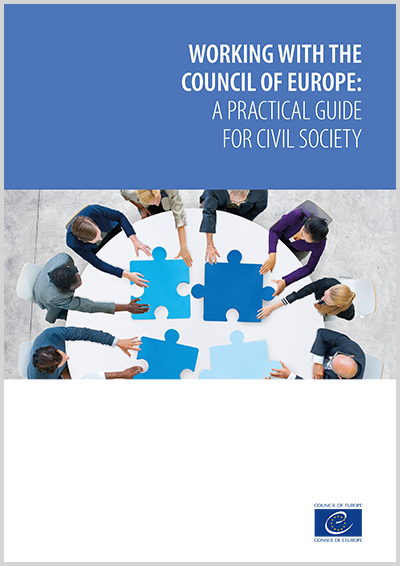Effectiveness of the ECHR System at national and European level

The Council of Europe’s legally binding human rights texts, the case law of the Court and the findings of monitoring bodies provide a means to achieve this. Its transversal and multidisciplinary approach includes standard-setting work, through which the Organisation provides guidance in response to challenges posed to human rights in European societies, and targeted co-operation programmes which support domestic authorities in addressing the issues raised by the Court’s judgments and by other Council of Europe monitoring mechanisms.
Steering Committee for Human Rights - CDDH
The CDDH carries out intergovernmental work on human rights and advises the Committee of Ministers.
 Focus 2022-2025
Focus 2022-2025
Inter-state and conflict-related cases brought before the European Court of Human Rights, national measures to prevent and remedy violations, accession of the European Union to the court, human rights and the environment, trafficking in human beings for the purpose of labour exploitation, human rights in situation of crises, human rights and business, human rights and artificial intelligence
 Civil society involvement
Civil society involvement
- Participant: Conference of INGOs (CINGO)
- Observers
- Consultation with civil society, either through direct participation in their meetings, or through dedicated hearings or written consultations
Creating forums and networks between policy makers, the legal and justice professions and civil society is at the core of co-operation work. Civil society with specific expertise in justice and human rights both benefit and contribute to discussions about the functioning of the justice system and protection of human rights. Civil society may be directly involved as a partner, beneficiary, target group or expert.
NGOs can benefit from the HELP Programme (Human Rights Education for Legal Professionals), which plays a significant role in supporting member states in implementing the Convention and executing the Court’s judgments. HELP human rights online courses are available for free. Skills covered include bioethics, environment, data protection, violence against women, fair trial or reasoning of judgments.
The Council of Europe collaborates closely with individual national human rights institutions (NHRIs) in all areas of activity, ranging from human rights compliant business practices to torture prevention. This is organised according to how they are set up in their national systems and is not limited to Council of Europe member states, but extends beyond, covering neighbourhood countries in the Middle East, North Africa and Central Asia.
The Council of Europe also works closely with regional NHRI networks, such as the European Network of NHRIs (ENNHRI). ENNRHI was closely involved in work that resulted in the adoption of recommendations on the development and strengthening of effective, pluralist and independent national human rights institutions and strengthening the protection and promotion of civil society space in Europe.
NHRIs play an important role in the system of execution of Court judgments carried out by the Committee of Ministers.
The Committee of Ministers has made recommendations, drawn up in close co-operation with civil society. They call on member states to ensure that their national laws and practices comply with clear principles, and to regularly evaluate national measures designed to strengthen the space for civil society. A handbook called Civil Society and Human Rights explains the three recommendations in detail.
- Recommendation CM/Rec(2018)11 on the need to strengthen the protection and promotion of civil society space in Europe;
- Recommendation CM/Rec(2019)6 on the development of the Ombudsman institution;
- Recommendation CM/Rec(2021)1 on the development and strengthening of effective, pluralist and independent national human rights institutions.
More information on co-operation in the field of justice and human rights is available here and you can make contact here.
Human rights education for legal professionals - HELP
Legal professionals who are at the forefront of human rights protection must know the European human rights standards to apply them effectively. This is done through the HELP online courses that cover a range of human rights topics. The main objective of the courses is to enhance the capacity of judges, lawyers and prosecutors in all Council of Europe member states and beyond to apply European human rights standards in their daily work.
HELP online courses can be tailored to the different needs of countries, institutions and professionals. Since 2015, other professionals such as court staff, prison or probation officers or health practitioners have become increasingly interested in accessing HELP courses. NGOs can also benefit from any of the 40 HELP courses by either encouraging their staff or beneficiaries to take them or promoting their use. NGOs can assess the completion of HELP courses by requesting their staff or beneficiaries to present self-generated e-certificate upon completion of any given course.
In January 2022 the HELP online platform had more than 90 000 active users.
The Council of Europe HELP e-learning platform courses are free and open to anyone who creates an account. They offer the highest quality as they have been developed with experts, including lawyers from the European Court of Human Rights. Partners such as the European Judicial Training Network (EJTN), the Council of Bars and Law Societies of Europe (CCBE), the European Union Agency for Fundamental Rights (FRA), UNHCR and OSCE/ODIHR also contribute.



